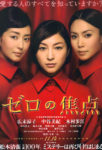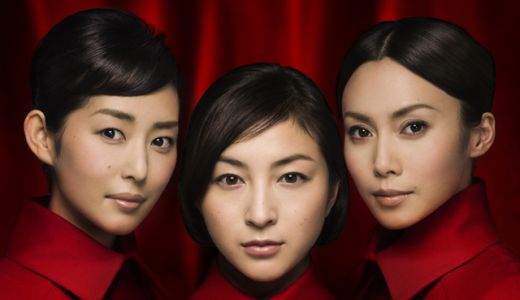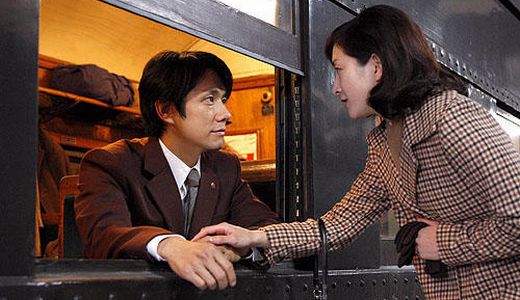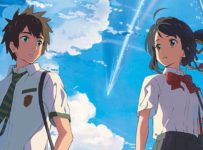 Based on the novel by Seicho Matsumoto, Zero Focus (ゼロの焦点) marks the 100th anniversary of the birth of that famous Japanese author. A prolific writer of mystery, historical and non-fiction works alike, “Zero no Shoten” (also known as Zero Focus) is arguably his most famous work. Previously made for the screen by director Yoshitaro Nomura in 1961, this anniversary retelling of Zero Focus from director Isshin Inudo (Goo Goo, The Cat) promised to be a more accurate retelling of the authors original work.
Based on the novel by Seicho Matsumoto, Zero Focus (ゼロの焦点) marks the 100th anniversary of the birth of that famous Japanese author. A prolific writer of mystery, historical and non-fiction works alike, “Zero no Shoten” (also known as Zero Focus) is arguably his most famous work. Previously made for the screen by director Yoshitaro Nomura in 1961, this anniversary retelling of Zero Focus from director Isshin Inudo (Goo Goo, The Cat) promised to be a more accurate retelling of the authors original work.
Recently wed Sadako Ubara (Ryoko Hirosue, Departures, FLOWERS and Villon’s Wife) bids farewell to her husband Kenichi (Hidetoshi Nishijima, Tokyo Rendezvous) as he sets out on a week-long business trip to Kanazawa, but he is never seen again. Sadako travels to Kanazawa to find out what has happened to him, where she meets two women that both appear to have links with her missing man. There is Sachiko Murota (Miki Nakatani, Flavor of Happiness and Ring), the wife of the owner of the factory that Kenichi worked for. She is assisting with the election of Kanazawa’s first female mayor. Then there’s Hisako Tanuma (Tae Kimura, Survive Style 5+) a receptionist with who managed to get the job from the company owner. Both women hold secrets that Kenichi is determined to uncover, and whether there is any connection with the serial killer that began operating around the time her husband went missing.
Although remaking Yoshitaro Nomura’s 1961 classic film of the same name, Isshin Inudo’s Zero Focus is full of his own visual style, and a fair bit of Alfred Hitchcock to boot. Indeed, the publicity for this film pitches this as “Charlie’s Angels meets Hitchcock”, although aside from the casting of three women in the lead roles (and the iconic poster), there’s not much of a connection with the former. Inudo retains a period a setting, and it is a very handsome film to look at: post-war Japan of the 1950s has never looked this detailed or stunning on-screen, with sumptuous photography from Takahiro Tsutai. The stunning pictures are underscored by a soundtrack that sharply recalls frequent Hitchcock collaborator Bernard Hermann, creating a very stylish package that will please at least two of the senses throughout the film.
However, if ever the term “style over substance” was appropriate, it is with Zero Focus. In attempting to explore the complexities and growth of the critical post-war Japan, caused by a disruption that is often referenced but rarely discussed expressly, Inudo and Kenji Nakazono’s script (based on Matsumoto’s novel, of course) needlessly complicates what is otherwise a simple tale of murder and intrigue. What results is an unfortunately uneven film, where the complexities serve to derail the primary narrative and occasionally confound the audience. At other times, the film commits the worse crime of trying to tie up its can of worms with a few conveniently placed deus ex machinas, pushing the already disoriented viewer right of the edge of the logic cliff. Zero Focus is an ambitious and stylish but ultimately flawed film.
Zero Focus is playing at the 14th Japanese Film Festival nationally. It is due to play again at Melbourne on 2 December 2010.
DVD Bits can be found on Twitter @DVDBits. DVD Bits is at http://www.dvdbits.com.






No Responses